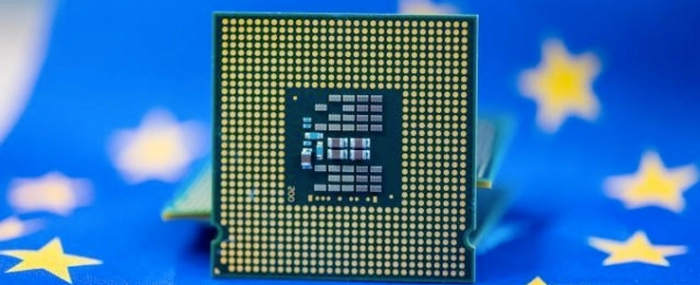
EU proposes Chips Act to confront chip shortages
The EU Commission has presented its European Chips Act - aiming to strengthen manufacturing activities in the EU and support the scale-up and innovation of the whole value chain and addressing the security of supply.
"Europe must reinforce its capabilities in semiconductors to ensure future competitiveness and maintain its technological leadership and security of supply," is a sentence that has been uttered within the EU throughout the current ongoing semiconductor shortage. And now, with the proposed EU Chips Act, the union is taking the first steps towards this.
Recent global semiconductor shortages forced factory closures in a wide range of sectors from cars to healthcare devices. In the automobile sector, some member states saw production decrease by one third in 2021. This made it made the dependency on the global semiconductor value chain even more evident – and also illustrated the importance of semiconductors for the entire European industry.
The Commission states in a press release that the EU Chips Act will build on Europe's strengths – research and technology organisations and networks as well as equipment manufacturers – and at the same time address weaknesses. The Act will mobilise more than EUR 43 billion of public and private investments and set measures to "prevent, prepare, anticipate and swiftly respond to any future supply chains disruption". This is a step aimed at enabling the EU to reach its goal to double its current semiconductor market share to 20% in 2030.
The main components of the the Chips Act are; the Chips for Europe Initiative, which will pool resources from the union, member states and third countries associated with existing EU programmes, as well as the private sector. The Commission says that EUR 11 billion will be made available under this initiative to strengthen existing R&D to ensure the deployment of advanced semiconductor tools, pilot lines for prototyping, testing and experimentation of new device and to train staff. Another part is A new framework to ensure security of supply, which will be achieved by attracting investments and enhanced production capacities, much needed in order for innovation in advanced nodes, innovative and energy efficient chips to flourish. In addition, a Chips Fund will facilitate access to finance for start-ups will be put in place. The Commission will also – together with member states – set up a monitoring system for the the supply of semiconductors, estimating demand and anticipating the shortages – it will map primary weaknesses and bottlenecks.
“The European Chips Act will be a game changer for the global competitiveness of Europe's single market. In the short term, it will increase our resilience to future crises, by enabling us to anticipate and avoid supply chain disruptions. And in the mid-term, it will help make Europe an industrial leader in this strategic branch. With the European Chips Act, we are putting out the investments and the strategy. But the key to our success lies in Europe's innovators, our world-class researchers, in the people who have made our continent prosper through the decades,” Commission President Ursula von der Leyen says in the press release.
The Commission is now encouraging member states to to immediately start working in alignment with a joint coordination mechanism – which aims to provide key insight to the current status state of the semiconductor value chain across the EU, to anticipate potential disturbances and take corrective measures to overcome the current shortage until the regulation is adopted.



